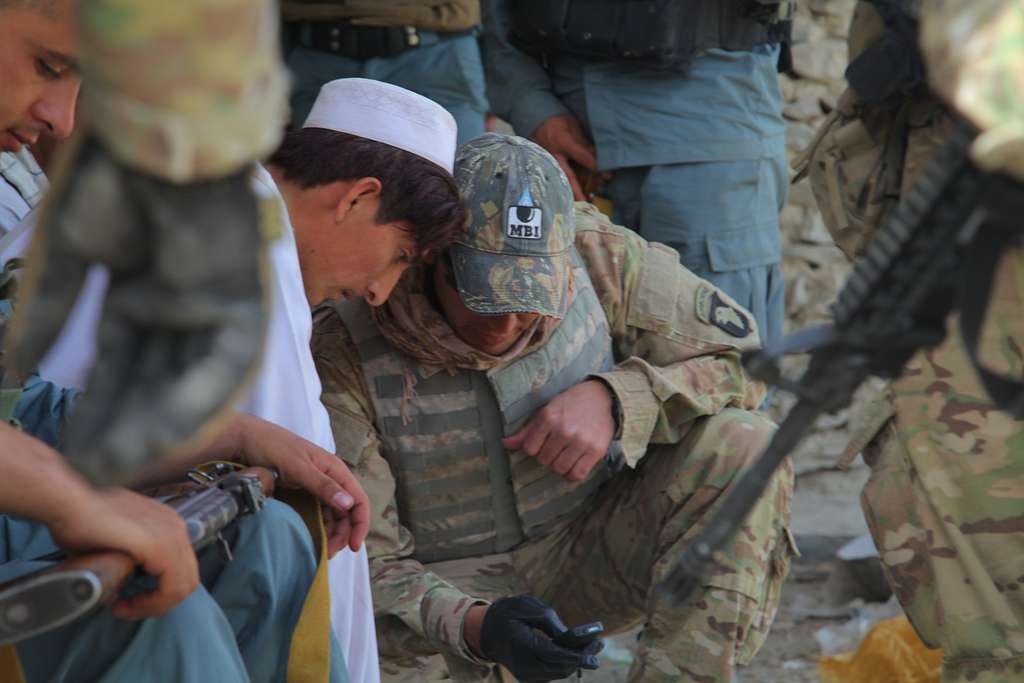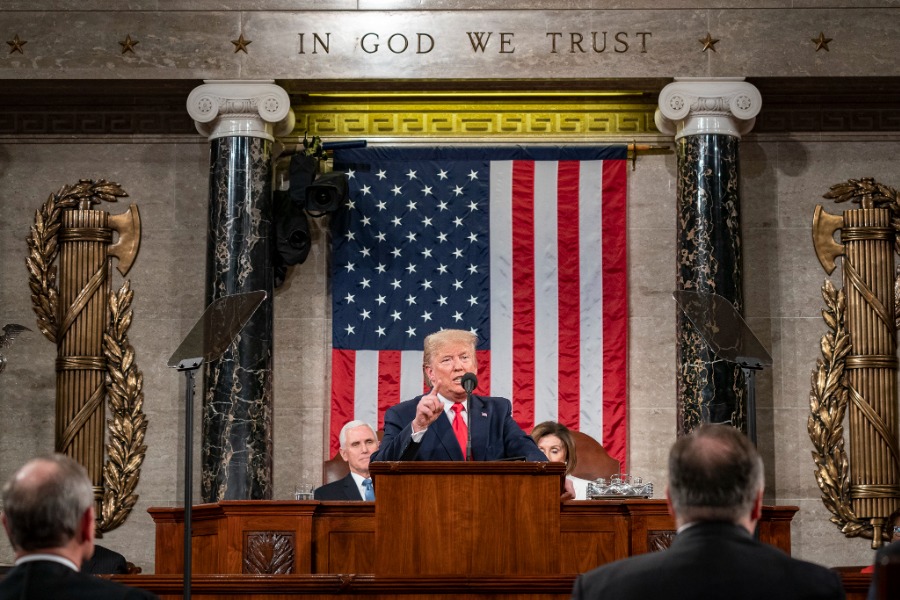The Legal Stakes in an Article II Humanitarian Intervention in Iraq
Published by The Lawfare Institute
in Cooperation With

The only potential legal innovation or close legal question here will arise under U.S. constitutional law if and when the U.S. uses lethal force at Mount Sinjar in order to stop a “potential act of genocide.” To be sure, preventing genocide would “further U.S. national security and foreign policy interests.” Moreover, because we would be acting with Iraq’s consent, this action would not risk an extended conflagration between nations (one of the principal concerns that animated the constitutional allocation of war powers). And presumably it is not anticipated that the use of force would be “sufficiently extensive in ‘nature, scope, and duration’ to constitute a ‘war’ requiring prior specific congressional approval under the Declaration of War Clause.” The difficulty of the constitutional question, then–as I discussed in this post–would be in assessing whether the particular interest in preventing genocide is of the sort that can justify the President acting without statutory authorization. And that question will arise only if and when the military uses lethal force at Mount Sinjar.I just want to add that this is not a small issue. If the President has inherent authority to use U.S. military force for a pure humanitarian intervention that he alone defines, then one of the last threads of limitation within the Executive precedents – at least for “force from a distance” (drones, cyber, and the like) – will be eliminated. What I wrote about the (aborted) Syria intervention applies here. If the President’s use of force goes beyond protecting U.S. persons and property and has no U.N. or regional organization sanction, that leaves “the weakest of all interests” to justify uses of force under inherent presidential authority under OLC precedents, namely, “preservation of ‘regional stability’ and maintenance of ‘peace and stability.’” As I wrote (with notes interspersed concerning Iraq):
These interests will of course always be present when the President is considering intervention, and thus by themselves are no limit on presidential power at all. Such interests were invoked in Libya and in earlier OLC opinions, but they were always invoked in connection with other factors (such as the consent of the nation in question) or other interests (such as the protection of U.S. persons or property, or the preservation of the U.N. Charter or a regional security treaty commitment), and never as sufficient by themselves. To be sure, OLC never published an opinion on the original Kosovo intervention, so we don’t know what the precise legal rationale there might have been. (We know from several war powers reports that President Clinton believed he had constitutional authority to intervene in Kosovo, but the legal support for this belief was never made public.) The Libya opinion, as noted, cites Kosovo as a precedent, and describes its justification in part as the need to preserve regional stability in Europe. For this reason, and since Kosovo too lacked Security Council authorization, we can expect OLC to rely heavily on the Kosovo precedent for any intervention in Syria. Kosovo is indeed the closest precedent. But the fact remains that the Kosovo intervention had a NATO angle that makes it easier to justify, to some degree, than Syria. This, then, is what is potentially important (under domestic law) about a Syrian intervention [note: and also about a pure humanitarian intervention in Iraq that does not rely on the 2001 or 2002 AUMF]: The further watering down of the “national interest” predicate to the President’s use of force under the already expansive understanding of presidential war powers in OLC opinions. This is the part of the argument that I expect will trouble administration lawyers most. How to buck up this part of the argument and make the national interest appear stronger and more of a limit on presidential power? I expect the lawyers will talk about the Syrian government’s alleged chemical weapons attacks on civilians, and the importance of preserving the “credibility and effectiveness” of the Chemical Weapons Treaty and related legal regimes, as well as, perhaps, international human rights law more broadly. [Note: In Iraq, it will not be the Chemical Weapons Treaty, but be other human rights treaties, such as the Genocide Convention.] But such a rationale, if adopted by OLC, would be a big step. For it would imply for the first time that the President has constitutional authority to use military force abroad for humanitarian interventions, even when no U.S. persons or property are involved and even when there is no U.N. Security Council interest (as in Libya) or regional security treaty interest (as in Kosovo) at stake. (Emphasis added)Or as I wrote, with fewer legalisms, here:
Of perhaps greater concern to Americans is the fact that an intervention in Syria would extend the president’s war powers under the Constitution beyond where they have gone before. An attack would necessarily be based on the president’s powers as commander in chief. Since the nation’s founding, presidents have possessed the authority to use military force abroad in the absence of Congressional authorization when acting in defense of the nation. Over time this self-defense rationale extended to permit the president to use force abroad to protect American persons and property there.
This was the basis, for example, for President Ronald Reagan’s use of force in Libya in 1986 (in response to the bombing of a Berlin disco) and President Bill Clinton’s use of force against Al Qaeda in Afghanistan and Sudan in 1998 (in response to two embassy bombings in East Africa). But this relatively uncontroversial rationale for presidential war unilateralism is unavailable in Syria, where the contemplated action is not aimed at protecting American persons or property.
Nor is the next-best (but more controversial) rationale — upholding the international rule of law by enforcing a Security Council Resolution — available. President Harry S. Truman invoked something like this rationale as a basis for his unilateral deployment of troops to Korea in 1950. More recently, Mr. Obama’s lawyers relied on the need to support the “credibility and effectiveness” of the Security Council resolution in support of the Libya intervention in 2011.
The problem with these precedents is that the Security Council did not authorize intervention in Syria, and an intervention there will thus harm, not help, the Council’s credibility and effectiveness. The absence of Security Council support thus weakens the president’s already uncertain constitutional power to invade Syria without Congressional approval — even under the executive branch’s expansive conception of its powers.
That leaves a single possible precedent: NATO’s bombing of Kosovo in 1999, without Congressional or Security Council support, to prevent human rights abuses. But the Clinton administration never explained why the original Kosovo invasion was consistent with the Constitution, and many people believed at the time that the president lacked unilateral power to initiate a bombing campaign on purely humanitarian grounds. An attack on Syria would go beyond even Kosovo, which at least implicated an interest in upholding one of our most important security commitments, the North Atlantic Treaty Organization.
That leaves two possible national interests that the president’s lawyers are likely to invoke for the Syria attack, but that have never alone been the basis for unilateral presidential uses of force: the United States’ interest in regional security in the Middle East, and its interest in upholding a norm against the use of chemical weapons.
Many will rightly wonder how this twin rationale can be squared with the text of the Constitution. But its main problem is that it places no limit at all on the president’s ability to use significant military force unilaterally. Future presidents will easily be able to invoke regional stability and the need to protect important international norms whenever they want to intervene abroad with strikes like the one expected against Syria.
The same basic points apply to an inherent Article II pure humanitarian intervention in Iraq.





